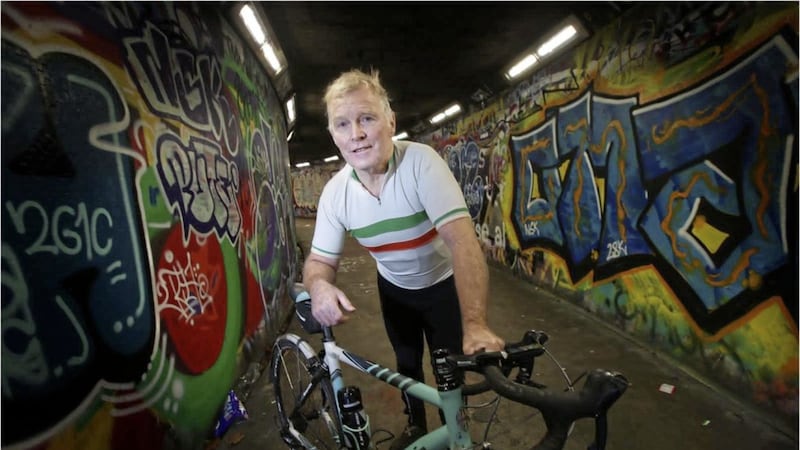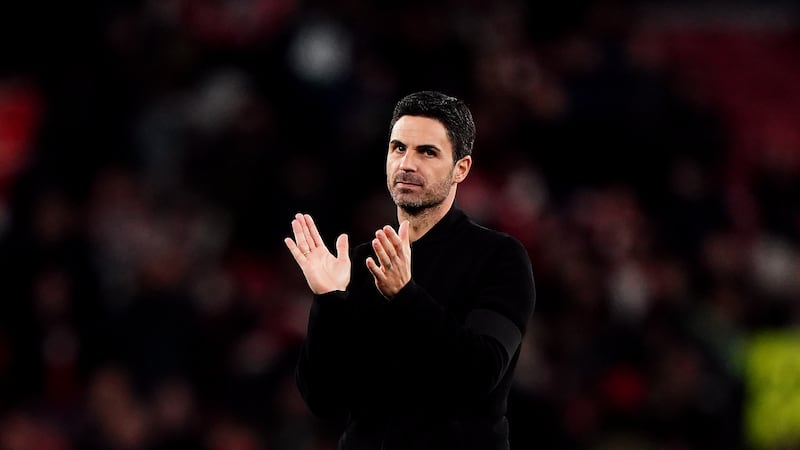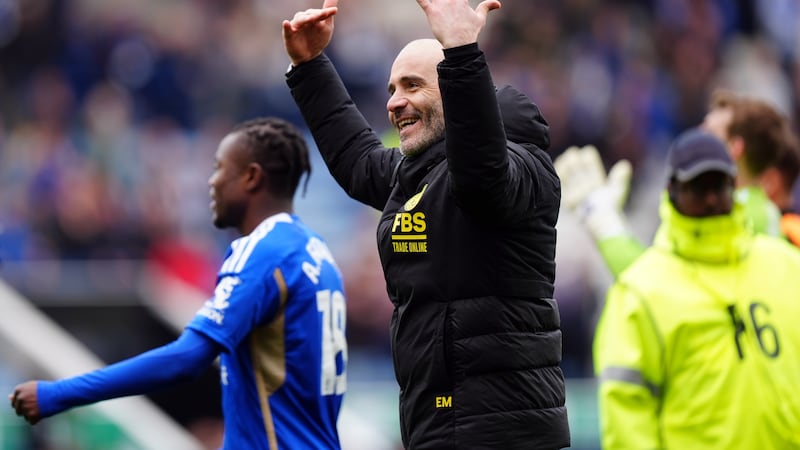BUTTERFLIES rise and swirl around in their stomachs when the nod finally comes. It had been three hours now since the seven Irish cyclists departed 49 Implerstrasse, the nondescript five-storey building they called home for the past five days, before moving into the Munich morning as daybreak approached.
John Mangan, Pat Healy, TP Reilly, Gabriel Howard, Batty Flynn, Brian Davey and Belfast teenager Brian Holmes made the short journey from their base in the south-west of the city to carefully selected lookout points on the fringes of Grunwalder Forest, splitting into groups of four and three a couple of miles apart.
Once in situ, all they could do was wait until the time came to enact the final stage of an elaborate plan hatched back in Ireland months previous, the dramatic last leg of a cross-continental expedition that began in Dublin over a week earlier.
These seven men were members of the National Cycling Association (NCA), an all-Ireland body that had been barred from international competition since 1947.
Their excommunication sparked a bitter cycling civil war, with official status granted to the Irish Cycling Federation (ICF), which catered for the 26 counties, and the Northern Ireland Cycling Federation (NICF), set up in 1949 for riders in the six counties.
That September morning, the start line for the road race at the 1972 Olympic Games was just a matter of miles away from where the two groups of NCA riders waited in the woods, ready to gatecrash the party.
And although there had been earlier protests at the 1955 World Cycling Championships in Italy and the 1956 Melbourne Olympics, the outbreak of the Troubles back home served only to sharpen their focus, the worlds of sport and politics about to collide on the biggest stage of all.
At just 19, Holmes was the youngest of the posse. While the plan was for the three further out to join the race once under way, he was part of the four aiming to be there when the starting gun sounded.
Whether it was adrenaline or the brazenness of youth, the magnitude of what was about to unfold rested easily on his narrow shoulders. They’d come this far, he thought. There could be no going back now.
“All the teams were being called as we were coming up the road. When we got down to where the grandstand was, I went first, thinking if I have to push them out of the road I will and then the others could fly past and get in position.
“We took our tops off, and we were all wearing our tricolor jerseys underneath. As we got closer the German officials were shouting ‘numbers, numbers… manager, manager!’ We just said ‘Ireland, Ireland’ and kept on going until we managed to get into the middle of all the rest of them.
“There was a bit of pushing and hauling, but we got there...”
Within seconds the Andersonstown man was captured by television cameras unfurling a banner that read ‘British army occupies our sporting fields’, his image appearing in newspapers across Europe and on front pages back home.
In the summer of ’68, 15-year-old Brian Holmes had stood slack-jawed on the side of a country road in Killarney, lapping up the sights and sounds of the Rás Tailteann for the first time.
From that awe-inspiring moment, he wanted to be a part of it all. Cycling was at the epicentre of everything. Four years on it was still there but the world that surrounded him had changed beyond all recognition.
There could be no going back now.
***************
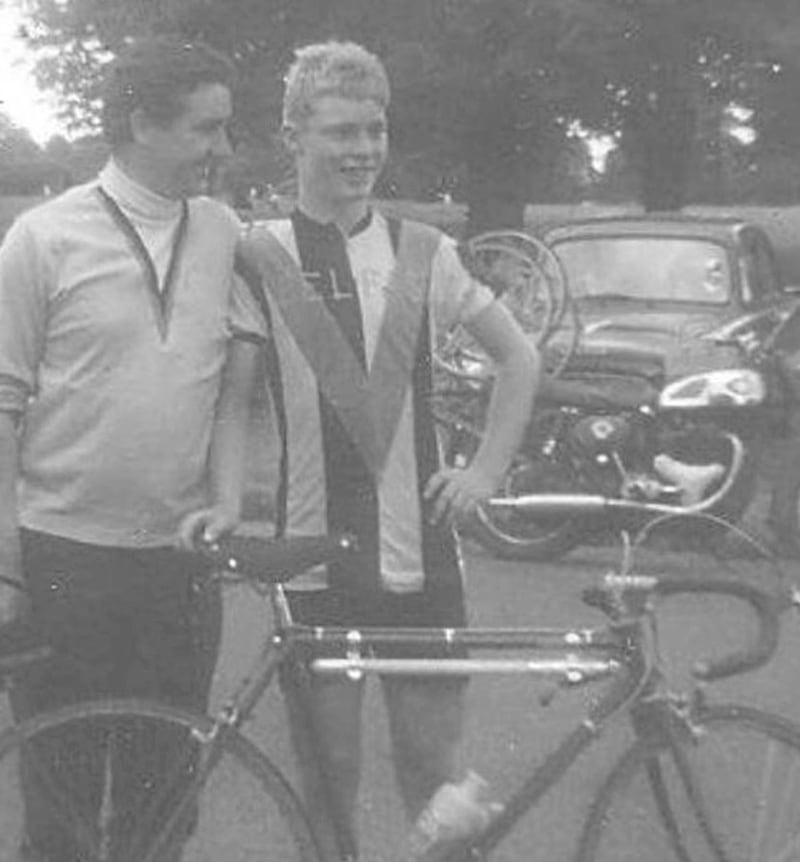
IT was Mickey Mooney who first glimpsed a bit of potential. Since getting a second hand bike for Christmas, Brian Holmes had joined the neighbourhood crew. When the notion took them they’d head out, often not returning until the sun went down.
“I ran about with ones down here,” he says, pointing out the window of his Bignian Drive home, “big Michael Doherty, John Gough, the Callaghans were over the street, the Campbells over there… there was a whole crowd of us who knocked about on bikes.
“There’s a saying, all roads lead to Castle junction - once you go up that road, you turn left, and take another left, you eventually find your way back.”
One day another neighbour, Colm Hyland, brought over a small newspaper cutting calling for anybody interested in cycling to go down to Casement Park the following Sunday morning. Mooney, who ran a club out of St Thomas’s school on the Whiterock Road, was the organiser.
Holmes went along on that first outing to Dromore. Upping the distance was a culture shock at first but gradually endurance improved while his enthusiasm soared. He’d played Gaelic football, hurling, still did the odd bit of boxing down at Dominic Savio, but this was different.
Then came that holiday to Killarney.
Over half a century on he can still see Czechoslovakia’s Jan Havelka speeding around the bend, County Antrim’s Benny Donnelly tucked in behind him as they hared long the road on the Dingle to Killorglin stage of the 10-day race.
Holmes was entranced.
“As soon as I heard speaking on the megaphone, I dropped everything and ran down. The campsite just emptied, then me and my da got into the car and flew up the road to try and get ahead of them before end of the stage.
“The colour, the crowds, I’ll never forget it. Benny lost to the big Czech but we were all buzzing. It was like seeing the World Cup on your doorstep. I turned round to my da and says ‘I’m doing this next year…’”
And, despite the doubts of his father and even Mooney, he did what he said he would, a series of eye-catching performances seeing the 16-year-old selected to ride for County Antrim at the 1969 Rás.
“Mickey was my mentor, like a father figure to me. He wasn’t sure if I could do the whole thing but I did and that first night riding into Dundalk from Dublin, you felt like a superstar,” smiles Holmes, “a wee lad from Andytown, people asking you for autographs and all.
“It was tough, but I loved every second of it.”
From the very start, Holmes was a member of the NCA. There weren’t any particularly grandiose ambitions, certainly none that might involve wearing the colours of anything other than a 32-county body.
But the further immersed in the cycling scene he became, the clearer the view of the divide that existed between the warring factions.
Claims of sabotage had always slung back and forth, with the NCA accused of spreading oil and leaving upright tacks on roads hosting rival races, while tensions often spilled over in the heat of battle.
“We’d have been battering each other with pumps out the road.
“I worked in Black’s garage at the time and there was one night I was coming out they threw bricks at me. These boys were in the NICF. The next night I made a big catapult and put spark plugs and ball bearings into it and fired it at them.
“That’s just how it was. The way we saw it, the NCA had been going since cycling started in Ireland – we didn’t break away from them, they broke away from us.
“The other groups would also be trying to suggest we were somehow second rate cyclists. Well John Mangan was living and cycling in Brittany, racing along with Greg LeMond and Bernard Hinault. Stephen Roche was an NCA man. Phil Cassidy won the Rás God knows how many times.
“What were their boys if they couldn’t beat him?”
By 1972, though, his involvement in the Republican movement extended far beyond cycling circles. On the day internment was introduced – August 9, 1971 – Holmes was standing yards away as 17-year-old friend Frank McGuinness was shot and killed by the British Army’s parachute regiment.
That morning he had been out on the bike, trying to shake off the frustration from a poor showing at a race the day before. Life would never be so simple again.
“I went to turn up to Finaghy Road and I was told you can’t go up there, there’s rioting. I was going on to work so they let me through, I was going to go down and cross the railway tracks but the motorway was blocked off. Cameramen were going across the motorway so I followed them, carrying my bike because of the glass, worried about wrecking my tubes.
“Once I got over I was standing talking to Frank McGuinness… next thing he was shot. Up until that day, I was nationally-minded but I wasn’t political. I was more interested in the cycling but that had a profound effect on me. I was only 18 myself.
“When we buried Frank, then Seanie Simpson… when all that was going on, something had to happen.”
Holmes didn’t enter the 1972 Rás but he was there at the opening stage, on the run. As the competitors arrived in Dundalk, he was summoned by race organiser Joe Christle.
The Dublin barrister, a well known Republican, was putting together plans for a protest in Munich. Holmes, whose training had lapsed over the previous year, was told to get himself match fit for the big one. This was the start of July, with the Olympic road race slated for September 6.
Two months to get ready, he was in. No questions asked.
***************
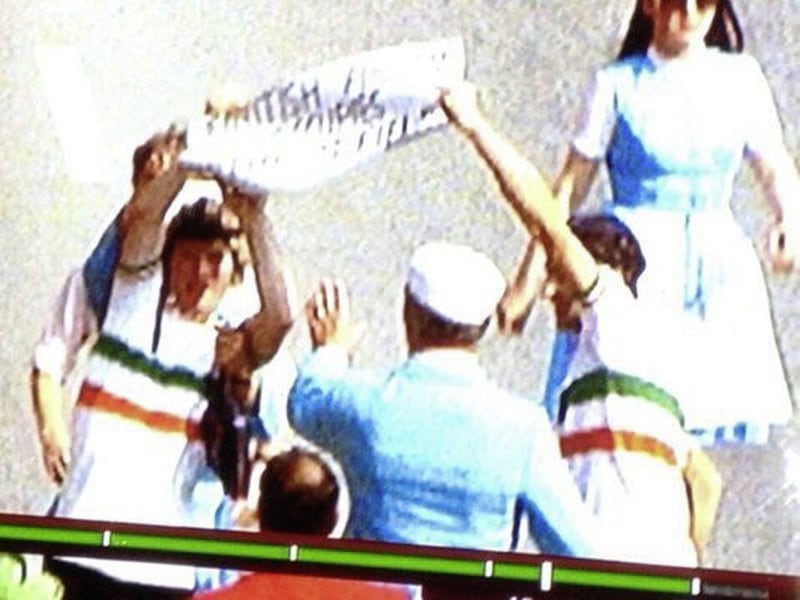
DUBLIN, Scotland, Dover, Ostend, Munich. All the logistics were sorted out, down to the last detail, but then you know what they say about best laid plans.
“A boat had crashed coming into Dun Laoghaire a couple of nights before, so there was only one boat going. The queue was two miles long and we couldn’t get on; we ended up having to drive from Dublin to Belfast, then over to Scotland.
“We had two cars but the brakes went in one, so we had to leave it in a garage outside London.”
Between the seven riders, as well as auxiliary team members, Holmes estimates there were “nine or 10” loaded into a small Volkswagen for the remainder of the trip to Dover.
A second car, a Ford Zodiac, met them in Ostend for the 900 mile camel ride from the Belgian port city, the journey broken up over two long, uncomfortable days before arriving in Munich on September 1, 1972.
Once there, it was straight down to business.
“We started training right away – we actually cycled the [road race] route. We saw a few other squads out and about, but we were trying to keep as low a profile as possible; there but not there.”
The night before, they ran through the plan one last time. Peaceful protest, get as much publicity as possible, and ride the race for as long as possible.
But as they waited in the woods the next day, nothing was happening. Two hours passed without seeing a sinner. After fearing they were in the wrong place, one of the party stopped a passer-by to ask why the race wasn’t being run.
Unknown to the NCA team, in the early hours of the previous morning 11 members of the Israeli Olympic team and a West German policeman had been killed after Palestinian militant group Black September stormed the athletes’ village.
Despite the enormity of ‘the Munich massacre’, and the shockwaves sent across the world, the Olympics were only postponed by one day. The NCA riders regrouped and returned the following morning, September 7, ready for another go.
After Holmes, Gabriel Howard, TP Reilly and Pat Healy had slipped past security and forced their way towards the start line, race organisers were eventually alerted to the imposters with no race numbers.
“They were all crowding round us but Pat Healy got off with the group. The other boys joined later then, John Mangan was actually leading the race for a couple of miles.
“They were trying to lead us away but we started handing out leaflets to other cyclists and spectators – I must’ve had about over a thousand leaflets stuffed into my pockets, ones we’d had done in English, German and French.
“There was a bit of booing, I could hardly get the first poster out because of my braces, but once I did the crowd started cheering. I turned it round and they pulled it down, so I pulled the other one out and myself and Gabriel Howard held it up – ‘Brits out of Casement’.
“This was all going out live on TV, so that was great. We wanted the attention. I was told ‘don’t come home if you don’t get on TV’. Nobody back home knew where I was for the last month. People just knew I’d gone down to Dublin, that was it.
“But when that came on all the ones in Rossnareen and Tullagh Park were shouting ‘f**king Homer’s on the TV – that’s where he is!’
“I phoned home after and my da says ‘I’m glad to hear you’re okay son - don’t be coming near the house’. Apparently the Brits had been in looking me about six times since I’d gone...”
There was further controversy out the road though as Banbridge cyclist Noel Teggart, an NICF-affiliated rider representing Ireland, was forced out of the race.
Team-mate Kieron McQuaid, the Dubliner who was affiliated to the 26-county ICF, claimed to have seen Mangan grab Teggart’s handlebars and push him into the crowd following an angry exchange of words.
“We knew nothing about it,” says Holmes.
“It came up as a storm and people, to this day, still hold that against us. He [McQuaid] can claim what he wants.
“If Noel Teggart really wanted to finish the race he could’ve got back on the bike. That might sound harsh but it’s true.”
Mangan was subsequently arrested and released without charge, the West German authorities agreeing that any further publicity would only reflect poorly on their own lax security measures.
As they prepared to return home, Taoiseach Jack Lynch - who was in Munich on the day of the race – expressed disgust at the NCA’s actions, and was determined to tell them in person.
“We had just got to Joe Christle’s house in Dublin when a cavalcade was coming round and there he was,” recalls Holmes.
“He sent for Joe and said they were going to take our passports. I didn’t mind – I think I’d three then. Which one do you want?”
As it turned out he wouldn’t be needing any of them for some time, the 19-year-old interned within two months of his return to Belfast. Between internment and a further seven-and-a-half year stretch, Holmes served 11 years in prison.
By the time of his eventual release in September 1983, however, years of feuding had come to an end when the NCA, NICF and ICF came together in a tripartite committee which would be used for international selection.
Despite the death of his own dream in Munich, Noel Teggart was a driving force behind northern clubs joining this new cycling power-sharing body. His grandson Matthew Teggart has maintained the family tradition and is in the frame to compete for Ireland at the next Olympic Games in Tokyo.
Holmes is 67 now but still goes out on the bike when he can. In recent years he was invited to take part in the Kieran Doherty commemorative cycle, and also participates in Hunger Strikers’ graves cycles. Plenty of water has passed beneath the bridge since Munich but, looking back on the events of 48 years ago, his feelings remain the same now as they were then.
“To me, we had to do it.
“Yes, there was the cycling aspect, but the most important part of it all was the message. By then the NCA had already done protests at the World Championships and the Olympics, so they knew we were going to be a pain in their arse. They knew we weren’t going to stop.
“Whether people admit it or not, I don’t care, but what happened in Munich was a catalyst for change. I’ve no regrets at all. I would do it again in the morning.”
